- Author Jason Gerald [email protected].
- Public 2023-12-16 10:50.
- Last modified 2025-01-23 12:04.
Reading the book The Easy Way to Stop Smoking by Allen Carr can be a positive experience if you are trying to quit smoking. This book, written by a former heavy smoker, has sold 6 million copies during its 20 years on the market. The techniques suggested by Carr have been successfully followed by many people seeking help quitting smoking.
Step
Part 1 of 4: Taking the First Step
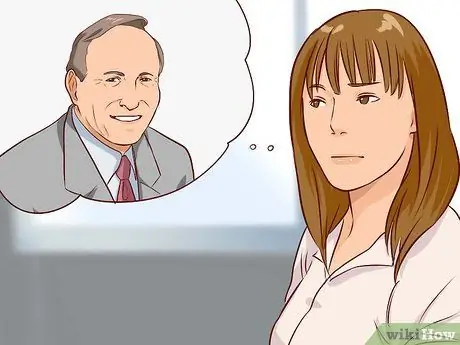
Step 1. Get to know Allen Carr
Before starting the smoking cessation process using his book, first identify who Allen Carr is and the effectiveness of his technique.
- Allen Carr is a British writer who wrote a book about quitting smoking. He is a former heavy smoker who smoked as much as 100 cigarettes a day and managed to quit smoking after smoking for 33 years. He shares a method that worked for himself in his best-selling book, The Easy Way to Stop Smoking.
- The effectiveness of Carr's method has been praised for years, and is widely spread by word of mouth. While scientific research into the Carr method is still limited, a 2014 study showed that smokers using the Allen Carr method were six times more likely to quit smoking after 13 months than smokers using the other method.
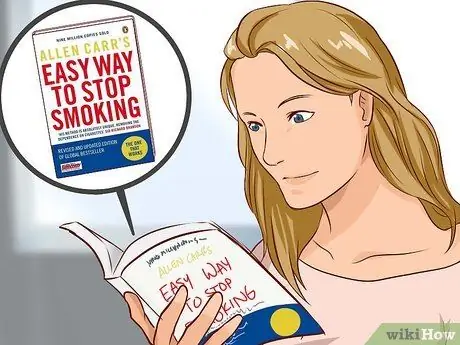
Step 2. Purchase the book The Easy Way to Stop Smoking
Allen Carr's books are still widely available on the internet and bookstores. You may also be able to find the book in the library. Before you start using Allen Carr's method, you need to buy the book.

Step 3. Set a smoking cessation date and time
The first step Carr suggests is to set a specific time and date to quit smoking.
- You need to choose a time to stop smoking in the near future. Mark it on your calendar as a day to quit smoking.
- Do not try to reduce cigarette consumption before the specified date. Carr's goal was to break with smokers' nicotine by showing that cigarettes did nothing to increase their enjoyment of life. Cutting down on cigarettes before a set date will pay more attention to the fact that you quit, making cigarettes seem more valuable.
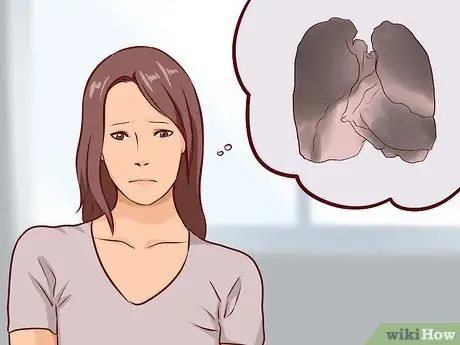
Step 4. Understand that smoking does not do you any good
One of Carr's motivational methods in The Easy Way to Quit Smoking is to emphasize the ridiculousness of smoking itself. To quit smoking, consider the harm that cigarettes have on your health versus the overall lack of benefit from smoking.
- Carr explains that giving up cigarettes basically doesn't cost you anything. This habit does not provide real pleasure. The only benefit that nicotine provides is that it keeps the smoker addicted. You have nothing to lose and are constantly making big positive changes to your health and lifestyle.
- Smoking is very dangerous for your health. Cigarettes damage every organ in the body, cause various diseases including lung cancer, and worsen the overall health of smokers. Quitting smoking will reduce the risk of lung disease, cardiovascular disease, and stroke gradually.
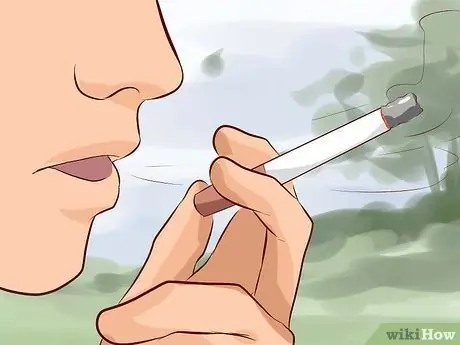
Step 5. Light your last cigarette
Carr suggests that when you light your last cigarette, you make a vow to never smoke again no matter how difficult the process of quitting feels.
- Stick to a quit smoking date. Make time for your last cigarette the night before.
- Sometimes it's helpful to list the benefits. People use it as a tool to motivate various lifestyle changes, including losing weight and quitting alcohol. If it's useful to you, write a vow to quit smoking and include a list of the health benefits of quitting smoking. Place this sheet of paper where you can see it, such as the refrigerator, and read it when you feel tempted.
Part 2 of 4: Getting Started
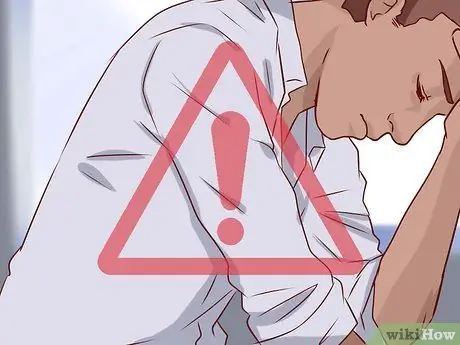
Step 1. Be prepared for withdrawal symptoms from nicotine
On the first day in particular, your body will go through a period of severe withdrawal due to low levels of nicotine in the system. This may cause you to look for cigarettes, but try to resist the temptation.
- Remember that withdrawal symptoms are temporary and will pass within a few days. Also keep in mind that smokers experience withdrawal symptoms from nicotine periodically throughout their lives when they can't smoke. Since you are now a non-smoker, you will never experience these symptoms again.
- Symptoms of withdrawal from nicotine include anxiety, depression, trouble sleeping, increased appetite, headaches, difficulty concentrating, and weight gain.
- Withdrawal symptoms usually appear within 2 to 3 hours of the last time you smoked. If you have smoked for a longer time or in large quantities, your symptoms may be more severe and last longer.
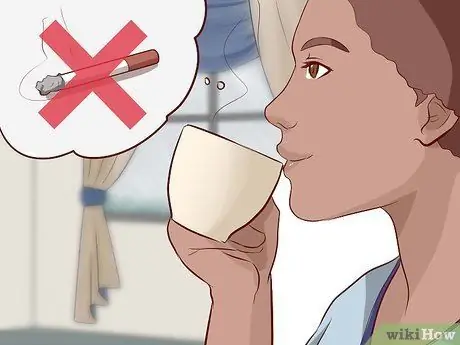
Step 2. Cope with situations and stimuli that make you feel the urge to smoke
Carr doesn't recommend avoiding the parts of your life that remind you of smoking. Instead, Carr suggests changing your thinking to focus on the positives of the situation.
- Throughout the day, there will be times when you feel tempted to smoke. If you always smoke with coffee in the morning, for example, you may feel the urge to smoke at that time. Try to think more about what you gain than what you lose. Don't think, "Now I can't smoke". Instead think, "Isn't it great that I can enjoy the moment without smoking?"
- Don't stay away from social events. Go out and meet lots of people. If you see people smoking, again, think about the positives. Free yourself from addiction and make a commitment to a healthier future.
- If someone offers you a cigarette, simply say "No thanks. I don't smoke" or say "No thanks. I quit smoking." No need for a long explanation. The less time you spend thinking about cigarettes, the better.
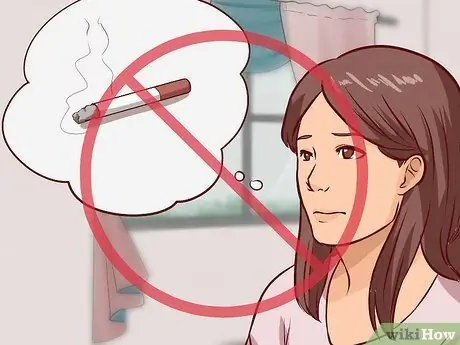
Step 3. Avoid thinking about cigarettes
Thinking about cigarettes, and the fact that you've quit, along the way will lead to failure. You need to avoid thinking about nicotine when trying to quit smoking.
- Again, when the urge arises, instead of thinking "I can't smoke", think "Great, I'm not a smoker now." Reshaping your mind to focus on the positive will last longer. Think about how comfortable it would be to quit smoking rather than the difficulties of quitting.
- If you can't stop thinking about smoking, do something to keep your mind off smoking. Take a walk, watch a TV show, call a friend or family member. Do whatever you can to keep yourself focused on the present moment and away from the temptation to smoke.
Part 3 of 4: Ending a Relationship with Nicotine
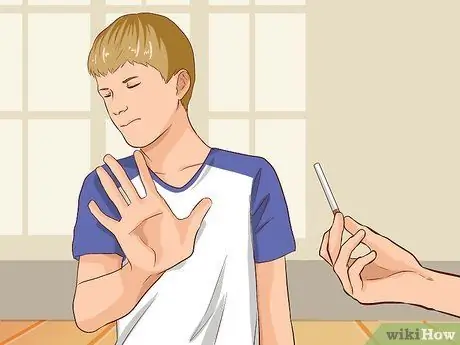
Step 1. Understand that you can never smoke while socializing
Many smokers are overconfident after refraining from smoking for a few weeks or months. You might think it's safe to go back to smoking while socializing once in a while, but that's not the case.
- Quitting smoking means completely breaking up with an addictive substance. A cigarette will soon pull you back into the trap. Never think of a cigarette as just one cigarette. Think of it as part of a lifelong dangerous habit.
- Nicotine is one of the most addictive narcotics ever. That's why social smokers or people who only smoke occasionally tend to become heavy smokers eventually. Nicotine affects the brain by acting on certain pathways to stimulate feelings of pleasure, thereby creating the sensation that smoking is a reward. More than 85% of people who try to stop nicotine use without using help will return to smoking within a week. This is why smoking "one cigarette" is so dangerous. Nicotine is notorious for being a tough substance to give up and you need to avoid anything that increases your chances of smoking again.
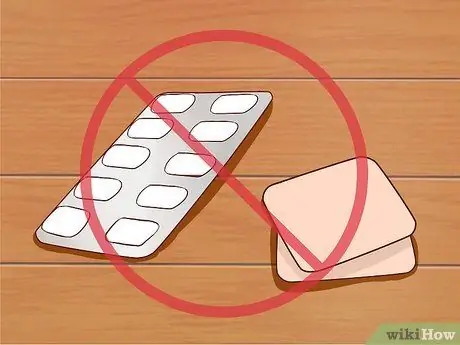
Step 2. Don't take nicotine substitutes
Carr does not recommend using nicotine substitutes, such as nicotine gum or nicotine patches.
- Nicotine replacement will encourage you to think on a sacrificial basis. By giving up nicotine, you are not making a sacrifice, but respecting yourself and your own body so you stop smoking.
- In addition, nicotine substitutes also cause nicotine addiction to persist. The sooner you get rid of your nicotine dependence, the easier it will be to quit smoking.
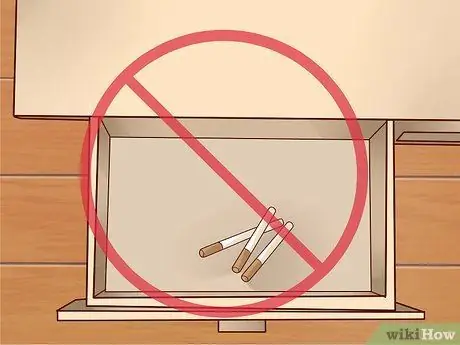
Step 3. Don't stock up on emergency cigarettes
Many people who are trying to quit smoking keep emergency cigarettes at home in case a strong urge arises. Do not keep any cigarettes in your home after making the decision to quit smoking.
- Storing cigarettes portends doubt. In order to successfully quit smoking, you need to proceed by realizing that this is the best option for you and your loved ones.
- Remember, you are not a smoker after you finish your last cigarette. You don't need cigarettes anymore. If cleaning your house from cigarettes is especially difficult for you, ask a friend or family member to look around your house and get rid of all cigarettes.
Part 4 of 4: Completing the Process

Step 1. Prepare life to be normal again
After a long time, not smoking will no longer feel strange. You will begin to return to your daily routine and establish new rituals and habits that revolve around your life as a non-smoker.
- You may still have the urge to smoke "just one cigarette," especially as things get back to normal. Remember, it will never be just a cigarette. This is a lifelong habit that you have left behind.
- Congratulate yourself on those times, such as in social situations, when you refuse an offer to smoke. Be proud of yourself and of the fact that you have given up smoking. Focusing on the positive will be more sustainable in the long term.
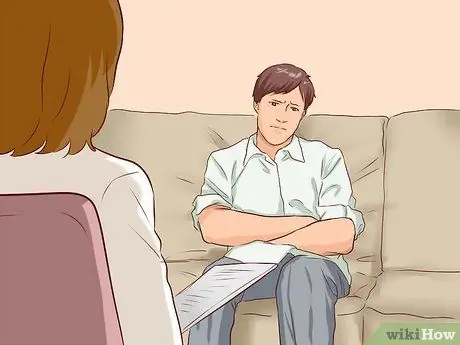
Step 2. Seek professional help if you have problems
If you're having trouble trying to quit smoking on your own you may need to seek additional professional help in addition to Allen Carr's book.
- Support groups are usually available in psychiatric clinics, where doctors or trained therapists lead discussions with other people trying to quit smoking.
- Narcotics Anonymous is an organization that holds meetings for addicts trying to recover to provide support. You can find these meetings in your area on the NA website.
- If you're having trouble quitting smoking, talk to your doctor. You can also seek help from a professional therapist to find out if there are emotional issues that trigger your addiction.
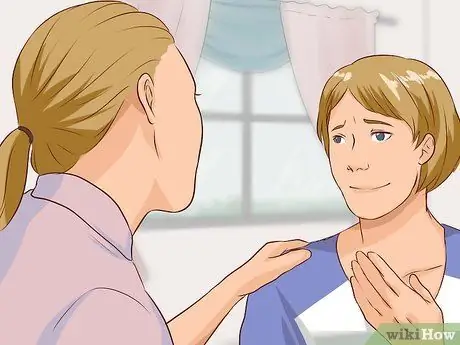
Step 3. Ask for constant support from friends and family members
Remember, you can't quit smoking alone. As you continue your healing process, talk openly with friends and family members about your decision to quit smoking and ask them to give you support.
- Ask family members who are smokers not to smoke in front of you or offer to smoke.
- Ask a few friends or family members if you can call them when you feel the urge to smoke. Choose people who feel empathetic and easy to talk to.
- If someone doesn't support your decision, it's a good idea to cut ties with that person for a while. Negative things will trigger addiction.
Tips
- Gaining weight is a concern for many people when it comes to quitting smoking. Quitting smoking does not cause you to gain weight on its own. The problem is that many people often use food as a substitute for nicotine. Try to get rid of temptations and unhealthy snacks from the kitchen and increase your exercise routine.
- Scare strategies, such as viewing statistics and worrying pictures, will make smokers experience the pain of withdrawal symptoms more quickly. Avoid places where this tactic is used.
Warning
Any major lifestyle changes should be made with the advice of a doctor. Keep in mind that if you have insurance, smoking cessation products are usually included, as long as you have a prescription
Related article
- Health Control
- Smoking Pipe Tobacco
- Stop Chewing Tobacco
- Quit smoking






